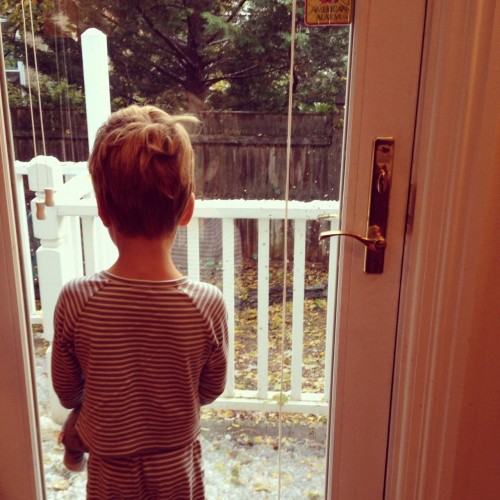A while ago I wrote about how I often stopped before things got hard, doubted in some fundamental way that I was not enough for a task in front of me. I want to clarify something important about this. First, I’m not sure that my resistance to really pushing myself – whether physically, emotionally, spiritually, or intellectually – is about fear of failure. It might be about fear of success. It might be abhorrence of discomfort of any kind. I really don’t know, which is why I shared it.
Secondly, when I write “not enough” I mean it in terms of myself, only: my own resources of strength, forbearance, intelligence, trust. I am absolutely not a zero sum kind of person, and I wasn’t speaking about the world.
Last week I re-read Molly Jong Fast’s article in Bazaar about the New York fear of there being “not enough preschool spots, enough Mandarin speaking nannies, enough David Netto-designed $1600 cribs.” The wording of that sentence, the not enough, sent me back here. Sure, I write about my deep anxiety about being safe, but essentially I don’t think there is limited abundance in this world. I really, truly care about supporting others, for example, and don’t do that with any agenda of my own but instead out of a sincere wish to help others. I am not a competitive person, which surprises some people. Ask my husband: he hates playing all games with me, whether tennis or bridge, because I simply don’t care about winning. I am uncomfortable with shows of excess, to the point of over-correction. I believe in my core that one of the best ways to remember how fortunate we are is to give of ourselves: whether it’s to listen to a heartbroken friend, to put a dollar in the guitar case of the man playing on the subway platform, or to cook a meal for the local battered women’s shelter.
I don’t know how I feel about The Secret, and I wouldn’t call myself a law of attraction disciple, but I do believe that abundance begets abundance. I think that there is a great deal of good in the world, and by noticing it, acknowledging it, we can add to it. In a quiet and somewhat dark period of my own life, I am grateful for the reminder of this.

